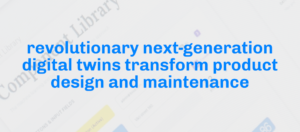::: nBlog :::
When crude oil was first discovered in Western US, it was an extremely cheap and abundant resource which quickly replaced existing lubricants and fuel oils previously extracted from e.g. whales. Many drills and pumps were so rudimentary that there was no way of controlling the once punctured well, resulting in a continuous flow that was captured only during daytime, while the ‘night oil’ was diverted to nearby rivers and ponds. Building storage or working three shifts was considered too expensive.
This made economical sense, as these new oil sources seemed limitless at the time. Environmental damage was also a non-consideration as most oil fields were in remote areas – out of sight, out of mind. One might think we’ve learned a lot from this early wastefulness. However, if we take contemporary resources like computing power, data storage and energy, it seems we’re repeating the same madness.
We are effectively littering people’s pockets (and data centers) with faster and faster multi-core CPUs and gigabytes of memory, most of which is utilized less than 2% of the time. Just like the night oil, this is now cheap and economical. Only during the last few years there have been some concern of rare earths (precious metals used in microchips) availability and pricing volatility. And although energy efficiency has improved, overall consumption still increases as there are more and more devices.
Traditional cloud computing and virtualization have improved the situation a bit as some resources have been aggregated to larger, shared data centers. In many cases, though, existing inefficient systems have been buried into large processor and memory pools without any optimization. Out of sight..
Our envisioned Spime world with dynamic resource negotiation and mapping is poised to break this mindless waste paradigm. With far more granular services (Spimes) sometimes residing in the cloud and moving to your handset, home gateway or drone controller (and back) on demand, there is suddenly a way to mitigate the onslaught of idle hardware everywhere. Furthermore, any idle CPU, storage or other resource can be made available to other Spimes, depending on real-time requirements and connection performance.
We have developed our beloved BaseN Platform towards this goal from the beginning. Today, in our production platforms we can utilize hundreds of CPUs and storage units simultaneously to provide the fastest analyses, alerts and control functions based on massive amount of collected data, in real time. Moving into full-fledged Spime implementations takes a bit of time, but fortunately I have the best architects and coders for it, putting BaseN into a pole position.
Your Spime will see you now.
//Pasi



